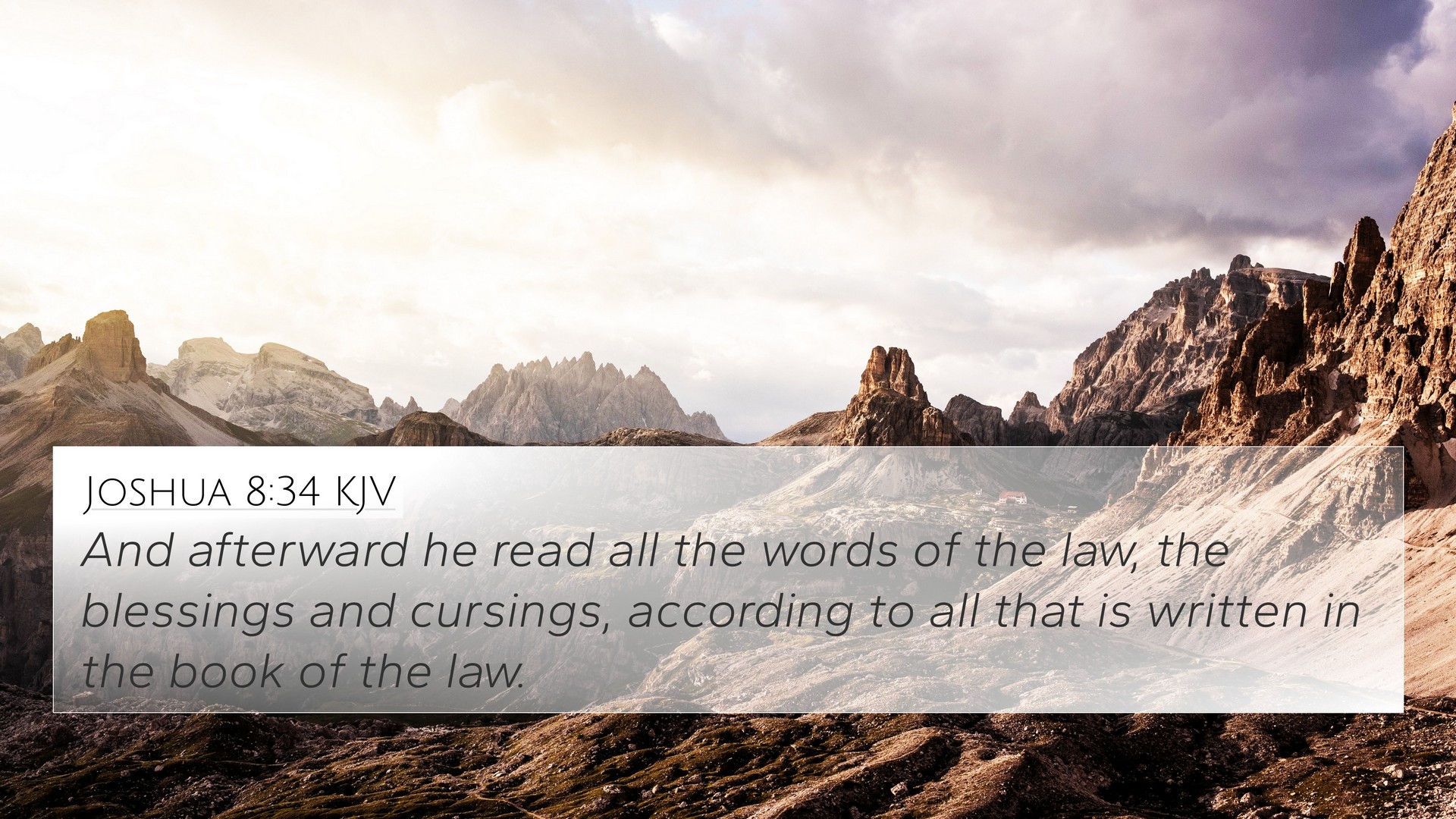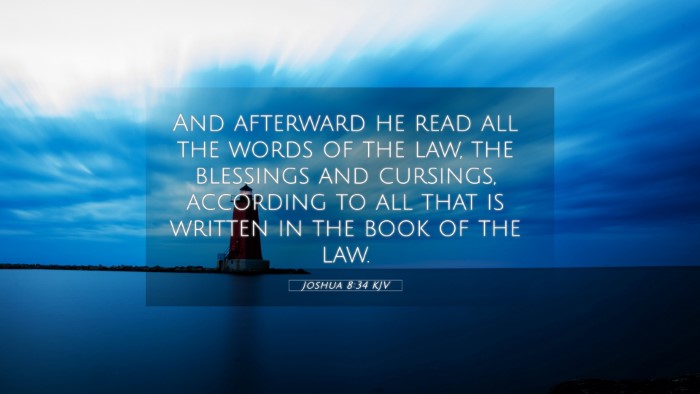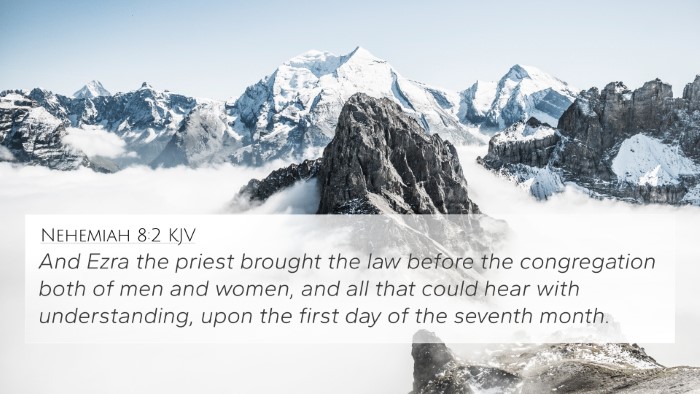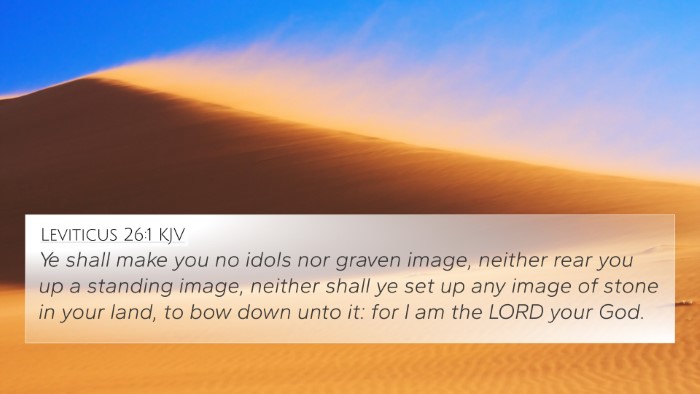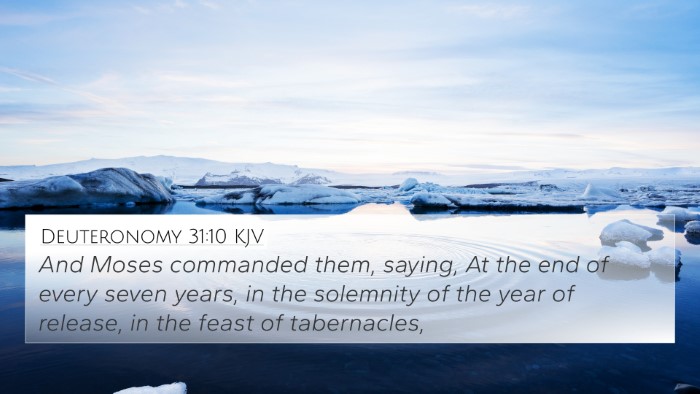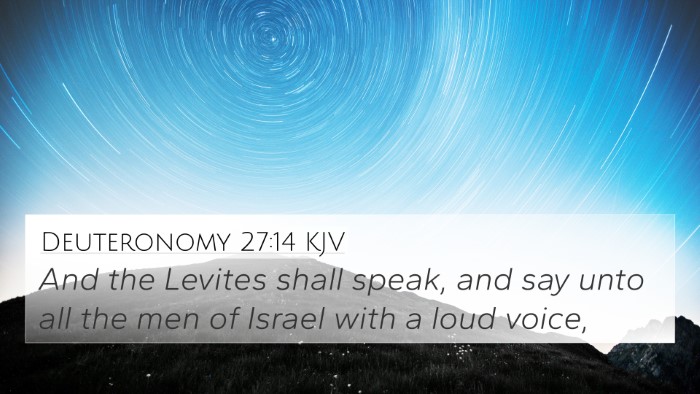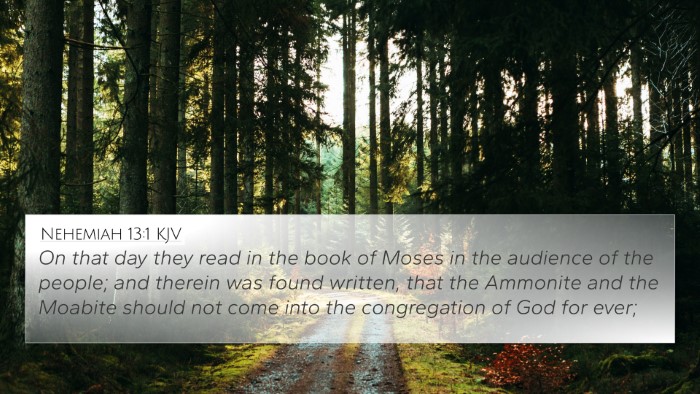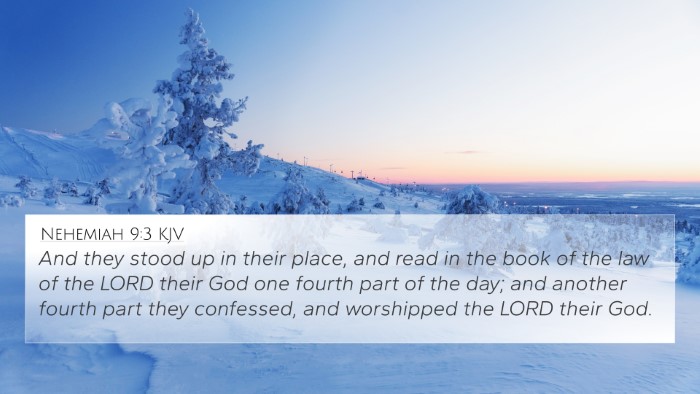Understanding Joshua 8:34
In Joshua 8:34, the verse states: "And afterward he read all the words of the law, the blessings, and the cursings, according to all that is written in the book of the law." This verse carries significant meaning within the context of the Israelites' covenant with God and highlights the importance of the Law. Let's delve deeper into the insights provided by renowned public domain commentaries to gain a comprehensive understanding.
Summary and Insights
The Importance of the Law: According to Matthew Henry's Commentary, this verse represents a solemn assembly where the people of Israel are reminded of the covenant they have with God. Henry emphasizes that reading the law was a critical act to reaffirm their commitment to God’s commandments. The blessings and cursings outlined in the law serve as a reminder of the consequences of obedience and disobedience.
Historical Context: Albert Barnes' Notes elaborates on the historical aspect, confirming that this reading took place after a significant military victory at Ai, establishing a moment of reflection and renewal for the Israelites. The public reading of the Law was meant to instill a sense of communal responsibility regarding their faith and practices.
Rituals of Remembrance: Adam Clarke's Commentary notes that the act of reading the Law was akin to a covenant renewal ceremony. It served to engage the entire nation in their history and the promises made to their ancestors. Clarke emphasizes the necessity of this practice to ensure that future generations do not forget their identity as God’s chosen people.
Key Themes and Applications
- Obedience to God's Word: The reminders of blessings and curses serve as a guide for living in accordance with God’s will.
- Community and Identity: This public declaration reinforces the shared identity of the Israelites as a covenant people.
- Historical Continuity: The reading connects the present generation with their ancestors, ensuring that their stories remain alive.
Related Bible Cross-References
This verse connects with several other biblical texts, providing a richer understanding through inter-Biblical dialogue:
- Deuteronomy 28: Lists the blessings for obedience and curses for disobedience, directly paralleling the themes in Joshua 8:34.
- Joshua 1:8: Highlights the importance of meditating on the Law, reinforcing the concept of internalizing God’s word.
- 2 Kings 22:8-11: Refers to the rediscovery of the Law during King Josiah's reign and the subsequent national repentance.
- Nehemiah 8:1-3: Describes the public reading of the Law after the Babylonian exile, echoing the covenant renewal theme.
- Psalm 119:105: "Your word is a lamp to my feet and a light to my path," showing the guiding nature of God’s word.
- Romans 10:17: "So faith comes from hearing, and hearing through the word of Christ," emphasizing the significance of God’s word in faith.
- James 1:22: Encourages believers to be doers of the word, not just hearers, connecting to the active response expected from the Israelites.
Thematic Connections across the Bible
The reading of the Law signaled a thematic connection that runs throughout Scripture—God’s desire for His people to turn back to Him and adhere to His dictates:
- Repentance: Calls throughout the Bible prompt a return to God's ways, as seen in Joel 2:12-13, echoing the need for heartfelt repentance.
- Renewal: The renewal of the covenant is a repeated theme in many books, with Ezra 10 serving as another example of commitment to God’s laws.
- Community Worship: The assembly-like gatherings described in Acts 2 reflect the importance of communal faith practices.
Tools for Bible Cross-Referencing
Understanding the connections in the Bible can be enhanced through various tools:
- Bible Concordance: A valuable tool for finding specific verses and their contexts.
- Bible Cross-Reference Guides: These guides help locate scripture related to themes and topics of interest.
- Cross-Referencing Bible Study Methods: Utilize various methods to understand the interplay between verses across the Testaments.
- Bible Reference Resources: Comprehensive materials are available to assist in scholarly study and personal devotion.
The Role of Cross-Referencing in Bible Study
Cross-referencing enriches our understanding of Scripture by:
- Providing Broader Perspectives: It allows us to see how different parts of the Bible speak to the same issues or themes.
- Establishing Biblical Foundations: By linking verses, we reaffirm key beliefs and principles as intrinsic to the faith.
- Facilitating Deeper Reflection: Engaging with multiple texts encourages us to ponder their meanings more profoundly.
Conclusion
Joshua 8:34 serves as a vital reminder to God's people about the importance of His Law and a call for communal faithfulness. Understanding the richness of this verse through cross-referencing opens a deeper appreciation for the narrative of Scripture, showing how interconnected God’s Word truly is. Engaging in comparative Bible verse analysis, whether through formal study or personal reflection, deepens one's faith and commitment to live by God’s commands.
